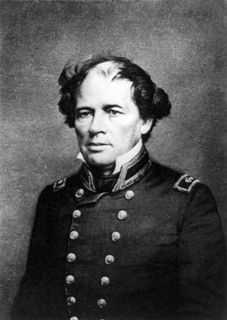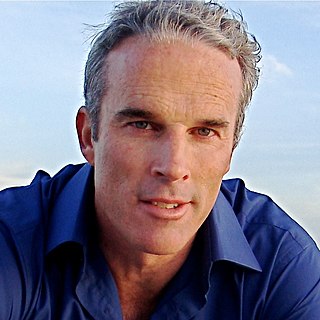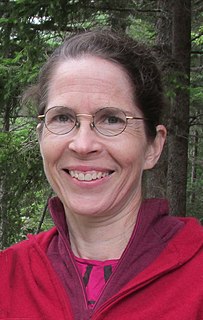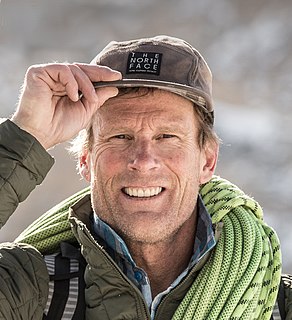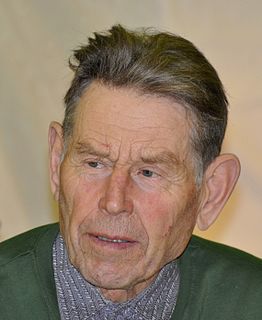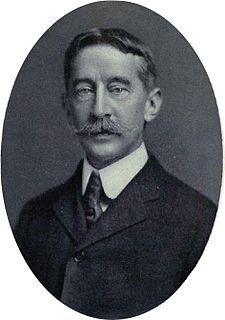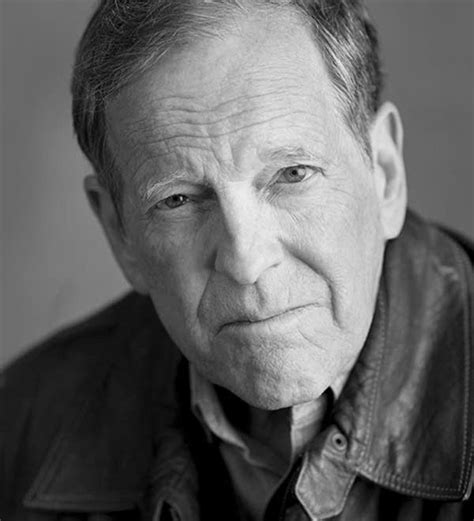Top 233 Arctic Quotes & Sayings - Page 4
Explore popular Arctic quotes.
Last updated on April 19, 2025.
From drought-parched Brazil to the increasingly ice-free Arctic Ocean, from the rising seas along the Florida coast to the punishing heat waves hitting South Asia, in communities large and small, rich and poor, urban and remote, we can see the irrefutable evidence of what science has long told us was coming.
We finally know where the red line for climate really is. After the rapid melt of arctic ice in the summer of 2007, our best scientists, led by NASA's Jim Hansen, went back to work and produced a series of papers showing that with more than 350 ppm (parts per million) of carbon dioxide in the atmosphere, we couldn't have a planet "similar to the one on which civilization developed and to which life on earth is adapted."
Could the waters of the Atlantic be drawn off, so as to expose to view this great sea-gash, which separates continents, and extends from the Arctic to the Antarctic, it would present a scene the most rugged, grand, and imposing. The very ribs of the solid earth, with the foundations of the sea, would be brought to light, and we should have presented to us at one view the empty cradle of the ocean.
There will be a shifting of the poles. There will be upheavals in the Arctic and the Antarctic that will make fotr the eruption of volcanos in the Torrid areas... The upper portion of Europe will be changed in the blink of an eye. The earth will be broken up in the western portion of America. The greater portion of Japan must go into the sea.
Working in the Arctic is definitely colder, but not necessarily harder. There were different challenges. And in many ways, Chasing Coral was even more of a struggle for me personally. And more of a struggle to capture. Glaciers right now are changing very consistently. The interesting thing that we realized with Chasing Coral was that the corals reefs. They can go from living to dead in two months. And if you're not there at the right time to capture that before and after, you just show up and it's a dead reef. So it was a challenge to be at the right place at the right time.
Opening up Atlantic and Arctic waters to drilling would lock the next generation into burning oil and gas in a way that only makes climate change that much worse, fueling ever rising seas, widening deserts, withering drought, blistering heat, raging storms, wildfires, floods and other hallmarks of climate chaos.
It is estimated that one-third of all reef-building corals, a third of all fresh-water mollusks, a third of sharks and rays, a quarter of all mammals, a fifth of all reptiles, and a sixth of all birds are headed toward oblivion. The losses are occurring all over: in the South Pacific and in the North Atlantic, in the Arctic and the Sahel, in lakes and on islands, on mountaintops and in valleys.
You can scroll through my iTunes and I've got everything. I've got Ace Hood, Alt-J, Annie Lennox, Arctic Monkeys, Beanie Sigel, the Beatles, Beth Hart, Big Sean, Bob Dylan, Bon Iver, Chief Keef, Coldplay, the Flaming Lips, Mariah Carey, Miley Cyrus, Nicki Minaj, OutKast, Pet Shop Boys, Peter Gabriel, the Smiths, and the list goes on from there.
A travel book is a book that puts you in the shoes of the traveler, and it's usually a book about having a very bad time, having a miserable time, even better. You don't want to read a book about someone having a great time in the South of France, eating and drinking and falling in love. What you want to read is a book about a guy going through the jungle, going through the arctic snow, having a terrible time trying to cross the Sahara, and solving problems as they go.
Remember...this year has already seen more billion-dollar weather-related disasters than any year in US history. Last year was the warmest ever recorded on planet Earth. Arctic sea ice is near all-time record lows. Record floods from Pakistan to Queensland to the Mississippi basin; record drought from the steppes of Russia to the plains of Texas...This is what climate change looks like in its early stages.
There is one distinctive charm about fishing - its fascinations will stand any climate. You may sit crouching on ice over a hole inside the arctic circle, or on a Windsor chair by the side of the River Lea in the so-called temperate zone, or you may squat in a canoe on an equatorial river, with the surrounding atmosphere forty-five percent mosquito, and if you are fishing you will enjoy yourself.
I read a ton of nonfiction. I tend to read about a lot of very extreme situations, life-or-death situations. I'm very interested in books about Arctic exploration or about doomed Apollo missions. I tend to read a lot of nonfiction that's sort of hyperbolic and visceral. And then I kind of draw on my own personal experiences and my own sort of generic life experience, and I kind of try to feed my day-to-day reality that I have with sort of high stakes reference points that I read about. They're things everyone can relate to.
Permafrost in the soil [is melting], in the boreal and arctic areas in the world, and, probably even more alarming in the last six or eight months, the data on what is happening to the ice shelves in Greenland and the west Antarctic has begun to cause people to radically reassess the earlier conviction that those ice shelves were stable on a kind of century-long time scale.
Almost everyone I spoke with in Maine who's involved with the Arctic told me that Mainers have more in common with people from Iceland and Norway than they do with people from New York or California - they all live in relatively small communities with fairly extreme weather, and mainly depend on the ocean and other natural resources.
The executive orders. Barack Obama is doing it again with this ban that he thinks is in perpetuity on offshore drilling in the Atlantic Ocean and north of Alaska. It's bad what Obama's trying to do, and I know exactly what he is doing with this. But the first thing is, the areas that Obama has, by executive order, declared off-limits are areas nobody wants to drill in anyway. There are no plans to drill off the coast, the East Coast of the country out in the Atlantic, and there are no plans to drill north of Alaska in the Arctic Circle.
There's another totally fraudulent recipient of the Nobel Peace Prize. Al Gore hadn't done anything but make a movie that itself was filled with misrepresentations about the amount of ice the poor polar bears have to live on, doctored photos. He said in his acceptance speech in 2007, getting a Nobel Peace Prize, that the North Pole would be ice free by 2013. Today the truth is, there is a record amount of arctic ice for this time of year. He couldn't have been more wrong.
Several factors besides skill are more significant in professional writers than in most amateurs. One is love of the surface level of language: the sound of it; the taste of it on the tongue; what it can be made to do in virtuosic passages that exist only for their own sake, like cadenzas in baroque concerti. Writers in love with their tools are not unlike surgeons obsessed with their scalpels, or Arctic sled racers who sleep among their dogs even when they don't have to.
Virtually, Finnish woods are stripped so bare, so sold out and first and foremost, so long way off from genuine diverse natural forest, that the resources of language will not permit excessive words. Finnish forest economy has been compared to the ravaging of rain forests. Nevertheless, the noteworthy difference is that there is a half or two thirds left from rain forests, but from Finnish forests there is left - excluding arctic Lapland - 0,6 per cent.
Far away in Montana, hidden from view by clustering mountain-peaks, lies an unmapped northwestern corner- the Crown of the Continent. The water from the crusted snowdrift which caps the peak of a lofty mountain there trickles into tiny rills, which hurry along north, south, east and west, and growing to rivers, at last pour their currents into three seas. From this mountain-peak the Pacific and the Arctic oceans and the Gulf of Mexico receive each its tribute. Here is a land of striking scenery.
At Last It's a perfect winter day. No wind. No Arctic freeze. Cloudless azure sky. A day to fly. Snow drapes the mountain like ermine, fabulous feather- light powder coaxing me to flee the confines of my room, brave the mostly plowed road up to the closest ski resort. To run from the cloying silence connected Mom and Dad, into encompassing stillness far away from city dirt and noise Far above suburban gridlock. Far beyond the grasp of home.
India then being four-sided in plan, the side which looks to the Orient and that to the South, the Great Sea compasseth; that towards the Arctic is divided by the mountain chain of Hmdus from Scythia, inhabited by that tribe of Scythians who are called Sakai; and on the fourth side, turned towards the West, the Indus marks the boundary, the biggest or nearly so of all rivers after the Nile.
Some have suggested that ideally there must be some international body that would treat areas like the Arctic as a global commerce, a bit like the way we treat the sea. It doesn't belong to any particular country, but to all of us, but I'm not sure some of the powerful are ready for that sort of solution.
Moss grows where nothing else can grow. It grows on bricks. It grows on tree bark and roofing slate. It grows in the Arctic Circle and in the balmiest tropics; it also grows on the fur of sloths, on the backs of snails, on decaying human bones. ... It is a resurrection engine. A single clump of mosses can lie dormant and dry for forty years at a stretch, and then vault back again into life with a mere soaking of water.
What's your story? It's all in the telling. Stories are compasses and architecture; we navigate by them, and to be without a story is to be lost in the vastness of world that spreads in all directions like arctic tundra or sea ice. To love someone is to put yourself in their place, we say, which is to put yourself in their story, or figure out how to tell yourself their story. Which means that a place is a story, and stories are geography, and empathy is first of all an act of imagination, a storyteller's art, and then a way of traveling from here to there.
It's possible that we'll screw up the climate so badly that most of us will die and a few breeding pairs will remain somewhere in the arctic. What's more likely is that we'll continue remaking the planet, driving many species to extinction, killing millions of people through the indirect effects of climate change, making life even harder for the poor and powerless than it is now, and making it a little more difficult for the global middle class to live the lives to which they have become accustomed - in other words, business as usual, only worse.
Arctic-dwelling Eskimos have no choice but to eat large amounts of meat and animal fat. But let's get our facts straight: according to the American Journal of Clinical Nutrition, Eskimos also have the highest incidences of heart disease and osteoporosis in the world and, in general, short life spans. Perhaps that is something to consider when we are faced with the choice of what to eat for dinner and unlike Eskimos most of us do have choices.
Your average knitter, obsessed as we are with the art form, is quickly going to begin producing far more in the way of warm things than are needed by even an arctic-bound knitter. Knitting breeds generosity, true...but perhaps in a hurry to avoid burying ourselves in hand-knits. There are only so many scarves one knitter can use.
We can look forward to the day when the free flow of trade, from the southern reaches of Tierra del Fuego to the northern outposts of the Arctic Circle, unites the people of the Western Hemisphere in a bond of mutually beneficial exchange, when all borders become what the U.S.-Canadian border so long has been: a meeting place, rather than a dividing line.
Russians want to drill in the Arctic. Rex Tillerson has negotiated a multibillion-dollar deal with Exxon to do that drilling. They can't get the equipment, the supplies and all that they need until the sanctions are lifted. They want Donald Trump; not only will he support lifting those sanctions, he also will turn a blind eye to the expansion that Putin is trying to do. He does not care about them having invade Crimea and does not care whether or not this egotistical maniac, Vladimir Putin, is attempting to reunite the whole Soviet Union.
We've lost half the summer sea ice in the Arctic. We've wiped out an enormous percentage of the world's coral reefs. We see huge changes in the planet's hydrology already, the cycles of drought and flood both amped up because warm air holds more water vapor than cold. These things are happening with a one-degree increase and going to two degrees won't be twice as bad, the increase in damage won't be linear, it most certainly will be exponential. So it was precisely the wrong moment to elect Trump.
We thank those Senators, both Republican and Democrat, who stood firm against tremendous pressure from the Bush administration, pro-drilling members of Congress and their allies in the oil industry. They recognize that the budget is an inappropriate place to decide controversial national policy matters like America's energy policy. We urge all members of Congress to remain steadfast in their belief that the vast, unspoiled wilderness of America?s Arctic National Wildlife Refuge is more than a line item in the Federal Budget.
With 1 million square miles of the Arctic melting unexpectedly this summer, these are warning signs that we have to act and act now. Our addiction to Middle Eastern oil obviously has security implications, and we think it's about time to be generating Eastern Washington wind energy instead of sending our money to the sheikhs.
Much of the attention on oceans has portrayed oceans as a villain. Warm water strengthened Hurricane Katrina that pounded Louisiana. Rising sea level will flood islands and coastal areas. Or, we're talking about new opportunities like a new shipping lane in the Arctic because of melting sea ice. These may be the obvious problems, but they're probably not the biggest ones.
Canada regards herself as responsible to all mankind for the peculiar ecological balance that now exists so precariously in the water, ice and land areas of the Arctic archipelago. We do not doubt for a moment that the rest of the world would find us at fault, and hold us liable, should we fail to ensure adequate protection of that environment from pollution or artificial deterioration.
There is a cheap literature that speaks to us of the need of escape. It is true that when we travel we are in search of distance. But distance is not to be found. It melts away. And escape has never led anywhere. The moment a man finds that he must play the races, go the Arctic, or make war in order to feel himself alive, that man has begin to spin the strands that bind him to other men and to the world. But what wretched strands! A civilization that is really strong fills man to the brim, though he never stir. What are we worth when motionless, is the question.
We're constantly re-evaluating the potential for life. We're finding it where we didn't think it could exist, such as volcanic vents and other extreme conditions like under arctic ice. We're finding life in these incredibly harsh and dynamic conditions, so we're having to re-evaluate our own ideas of what's possible on this planet alone.
The discovery of the Terror in, of all places, Terror Bay, on the southwest coast of King William Island, was the culmination of years of exertions by the Arctic Research Foundation (ARF) in collaboration with the Royal Canadian Navy, the Coast Guard, Parks Canada, the Canadian Hydrographic Service, the Canadian Ice Service and other agencies.
The more we heat up the planet, the more it costs all of us, not just in money, but in colossal famines, displacements, deaths, and species extinctions, as well as in the loss of some of the things that make this planet a blue-green jewel, including its specialized habitats from the melting Arctic to bleaching coral reefs.
The Old Religion, as we call it, is closer in spirit to Native American traditions or to shamanism of the Arctic. It is not based on dogma or a set of beliefs, nor on scriptures or a sacred book revealed by a great man. Witchcraft takes it's teachings from nature, and reads inspiration in the movements of the sun, moon, and stars, the flight of birds, the slow growth of trees, and the cycles of the seasons.
For the record, this isn’t a male/female thing. It’s a people thing. You talk about men being cold...you should see women from my standpoint. We’re talking the Arctic tundra would be warmer. Believe me, you don’t want to know my vantage point on your gender. As a man, if I grabbed your breasts, I’d be arrested. Any idea how many women have felt free to grab my crotch at will? (Acheron)
...men, groping in the Arctic darkness, had found a yellow metal, and because steamship and transportation companies were booming the find, thousands of men were rushing into the Northland. These men wanted dogs, and the dogs they wanted were heavy dogs, with strong muscles by which to toil, and furry coats to protect them from the frost.


